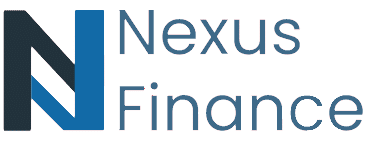Compare Lenders
Discover Popular Financial Services
More About Getting a Business Loan in Ontario
- How to get a business loan in Ontario?
- Where to get business loans in Ontario?
- What are the types of business loans you can get in Ontario?
- How much money can I get from a business loan in Ontario?
- What can business loans be used for in Ontario?
- What is a good interest rate on a business loan in Ontario?
- What factors affect business loan interest rates in Ontario?
- How do I find the best business loan rates in Ontario?
- What factors to consider when comparing business loan lenders in Ontario?
- How do I qualify for a business loan in Ontario?
How to get a business loan in Ontario?
Before approaching any business loan lender in Ontario for funding, you should ensure you have some basic paperwork, including business legal documents, financial documents, and a well-articulated plan that outlines the loan’s intended use. Essentially, you need to be able to demonstrate what the money’s for, why the loan is a good idea, and to prove you will be able to pay it back.Â
You can then move onto selecting the right Ontario business loan lender and business loan type for your needs. See more on this below; choosing the right tool for your financing needs is crucial. Once chosen, you can complete an application form with the business loan lender, remembering to include all of the supporting documentation relating to your business. And that’s it! A decision on your Ontario business loan should be with you within a few days to a few weeks (depending on the lender).
Where to get business loans in Ontario?
There are a myriad of business loan lenders in Ontario, each with their own distinct eligibility criteria and characteristics. They include:
- Banks and credit unions
- Alternative financing companies
- Industry-specific development organizations
- Community development organizations
- Online business loan lenders
- Private business loan lenders
- Government-backed programs
Every business loan lender has advantages and disadvantages – there is no perfect solution for everybody. So it’s important to pick one that prioritizes the same things you do.
It’s also worth noting that there are multiple development programs in Ontario which are designed to assist businesses that might not meet the stringent lending criteria of more traditional business loan lenders, such as banks. Not least among these is the Canada Small Business Financing Program, which supports the pursuit of entrepreneurial ventures in various industries by reducing the risk for a business loan lender, and thereby enhancing Ontario business loan accessibility.
What are the types of business loans you can get in Ontario?
A crucial aspect of getting an Ontario business loan is choosing the right type of loan for your company’s needs. There are many types of business loan, including:
- Online loans
- Term loans
- Short term loans
- Commercial mortgages
- Business lines of credit
- Invoice financing loans
- Merchant cash advance loans
- Bad credit business loans
- Home business loans
Each one of these business loans can differ fundamentally in terms of: available loan amount, repayment schedule, repayment method, loan term, possible loan uses, applicable fees, loan cost, source of loan, which companies are eligible for loan approval, and so on. Because of this variety, the first step in choosing the right type of business loan in Ontario for you is understanding:
- How much money you need to borrow
- How quickly you need it
- What it will be used for
- How and when you can pay it back
- How much you can afford to pay for your Ontario business loan
Answering these questions will narrow down the list of available Ontario business loans to just those suitable for your needs; you can then move onto selecting the right business loan lender of that type of loan, and finding the best business loan rates in Ontario for your situation.
How much money can I get from a business loan in Ontario?
Ontario business loans come in a range of sizes, and can vary between business loan lenders, and also between applying businesses. Most Ontario business loans are between $10,000 and $50,000, but borrowing amounts are available from just $500, to $500,000 or more. Generally speaking, the larger the loan amount, the stricter the eligibility criteria and the more in-depth the application process will be.
What can business loans be used for in Ontario?
Ontario business loans can be used for a wide range of purposes, including:
- Securing property or assets
- Financing a small business purchase
- Buying inventory
- Hiring employees
- Executing marketing plans
- Improving leased property
- Investing in innovation
- Working capital costs
- For expansion purposes
- For product improvement or development
- For renovations
- To cover emergency or short-term expenses, such as rent and payroll during seasonal downtimes
Use-Specific and Flexible Business Loans
Most small business loans in Ontario can be used for multiple purposes simultaneously. For example, if a business needs funds for employee-related expenses, equipment upgrades, and working capital needs, then many of the business loans available in Ontario are appropriate, as they can be used for all of these purposes. During the application process, a business must state (broadly) how the loan funds will be used, but there is no requirement to limit the funds to one type of expenditure. So online business loans, installment loans, working capital loans, term loans, short term loans and business lines of credit are all multi-purpose.
There are a few exceptions to this; commercial mortgages, vehicle loans and equipment loans are all good examples. All of these must be used for specific purposes – real estate costs, vehicles and equipment, respectively. They can’t be used for payroll, for example. And some programs (for example, the Canada Small Business Financing Program) may have some restrictions on how you can use their financing too.
What is a good interest rate on a business loan in Ontario?
Business loans in Ontario are available at a broad range of interest rates, depending on the type of loan and the borrower. The average interest rate on a standard installment business loan in Ontario is around 7-10%, but it can be as low as 6% or as high as 50%. Other types of Ontario business loan may charge much more. For example, business credit cards typically have interest rates of 15-30%. Merchant cash advances have effective rates of 8% to 35% or more. Commercial mortgages, on the other hand, may charge only 4-5%. And the business loan interest rate you qualify for depends on a number of factors related to the business.Â
What factors affect business loan interest rates in Ontario?
Ontario business loan interest rates depend on the loan type in question, the borrower’s profile, and the lender’s terms. More specifically, lenders are likely to study the following:
Borrower-Specific Factors Affecting Ontario Business Loan Interest Rates
- Credit history
- Length of time in business
- Assets
- Monthly revenue
- Cash flow projections
- Working capital costs
- Amount of existing business debts
- Intended use of funds
Lender-Specific Factors Affecting Ontario Business Loan Interest Rates
- Type of lender (e.g. alternative, online, traditional)
- Eligibility criteria
- Level of service provided
Loan-Specific Factors Affecting Ontario Business Loan Interest Rates
- Loan type
- Loan amount
- Loan term
- Repayment schedule
- Loan feesÂ
How do I find the best business loan rates in Ontario?
As mentioned above, shopping around can be key in finding the best business loan interest rates in Ontario. Here are some other ways to secure more favourable terms:
- Look at the type of business loan and the type of business loan lender, as there can be a startling variety in available rates. For example, short term solutions tend to cost more, as you are paying for convenience. Always choose the product and the lender with the best terms possible, given your needs.
- Offer collateral. An asset, such as property or equipment, will reduce a lender’s perception of risk and lower interest rates.
- Don’t ignore fees and the loan term for a better interest rate. Your monthly loan cost should not be the only consideration when it comes to budgeting; the lifespan of the loan and its associated fees will both be crucial to the loan’s overall cost.Â
What factors to consider when comparing business loan lenders in Ontario?
As mentioned above, not every business loan lender in Ontario is equal. Each type of lender has pros and cons; choosing a provider requires you to understand all of these attributes and how they interact with your priorities. As such, you will need to consider each lender’s:
- Policy frameworks, such as application processes, information requirements, and fees.
- Level, accessibility and speed of services; some lenders have 24/7 online assistance, while others offer telephone or in-person help. Some lenders process applications in a few days, others take weeks. Some have ancillary business services, others do not.
- Reputation, including customer reviews, length of time in business, transparency of terms, etc.
- Terms, including available funding amounts, types of financing offered, interest rates, etc.
These factors will allow you to select a business loan lender that offers a product that is suitable for you, while also protecting your business’s long-term financial health.
How do I qualify for a business loan in Ontario?
Business loan lenders in Ontario look at a number of criteria when determining eligibility for their business loans, including credit score, cash flow, and business plan. For established companies, lenders will often also assess annual revenue and operational history.Â
While each business loan lender has their own qualifying rules (which it’s prudent to check before completing an application), there are some general guidelines about qualifying criteria. For example:
- All business loan lenders require applicants to be based in Canada
- Almost all traditional and alternative business loan lenders in Ontario require a business to have been operational for at least 12 months
- Many have minimum monthly revenue thresholds; for banks and other large lenders, this is usual around $10,000
- Smaller and newer businesses will have a much easier time qualifying for a business loan from a private business loan lender, an online business loan lender, or a government-backed program
Explore more
Similar products
- bad credit business loans
- coffee shop business loans
- expansion business loans
- auto shop business loans
- food grocery store business loans
- home business loans
- invoice factoring
- medical dental practice business loans
- mid market financing
- point of sale financing
- restaurant business loans
- salon spa business loans
- business credit lines
- business loan application keep
- clothing store business loans
- business loans usa
- emergency business loans
- gym fitness club business loans
- inventory business loans
- marketing business loans
- merchant cash advance business loans
- ecommerce business loans
- renovation business loans
- retail store business loans
- working capital loans
Why Choose Smarter Loans?

Access to Over 50 Lenders in One Place

Transparency in Rates & Terms

100% Free to Use

Apply Once & Get Multiple Offers

Save Time & Money

Expert Tips and Advice




























